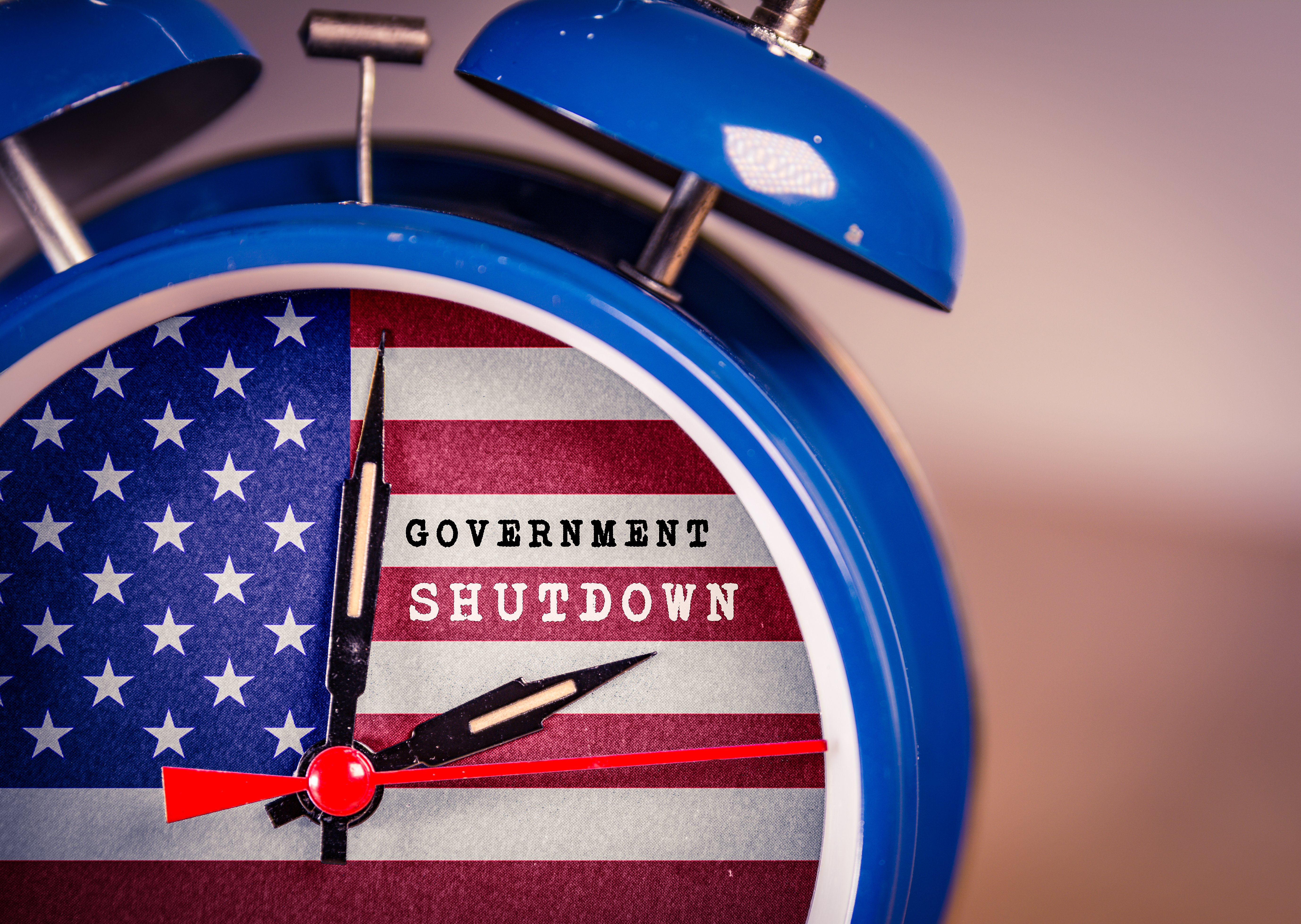
Despite passing a temporary measure to avoid a shutdown earlier this year, once again, a government shutdown looms as Congress has been unable to approve a continuing resolution or pass a spending bill since then. If this does not happen in the next two weeks, a government shutdown will occur.
If you are a government contractor, we suggest you consider the following 7 next steps:
A government shutdown occurs when the government's funding is halted due to a lapse in Appropriations, leading to the cessation of non-essential government services and furloughing of federal employees. While the immediate impact of a government shutdown is felt by federal workers, it also has significant repercussions on government contractors, who play a vital role in delivering various services and products to the government. Here are steps that you may consider:
- Understand how this may impact your company.
- Many government facilities will be closed, eliminating your access and performance.
- Many government employees will be furloughed, which may hinder progress on your programs.
- Invoices may not be paid during the shutdown and may be delayed upon reopening.
- No new contracts or modifications will be issued during the shutdown and may be delayed upon reopening.
- Statutory deadlines for filing claims and bid protests might not be automatically extended.
- Evaluate the financial impact of the shutdown on your organization, including cash flow, revenue projections, and potential layoffs.
- Explore opportunities for cost-cutting and cash reserves to sustain operations.
- Determine the impact on your contracts.
- Contracts may be paused, canceled, or extended, making it challenging to manage resources effectively.
- Understand the termination for convenience and termination for default clauses in your contracts.
- Performance under ongoing contracts that are sufficiently funded, like fixed-price contracts that do not require access to federal personnel or facilities, can continue.
- Determine if your company will experience financial strain.
- Contact your Contracting Officer
- Communicate with your contracting officers to clarify the status of your contracts and any potential changes during the shutdown.
- Request written guidance on how to proceed with contract work during the shutdown.
- Be specific for each of your contracts as instructions for each contract can vary from a Stop-Work Order to continue performing on the contract.
- Contact your subcontractors to reduce uncertainty and align on an action plan.
- Assess the impact of the shutdown on subcontractors and suppliers.
- Communicate with subcontractors to ensure they are aware of the situation and can adjust their work accordingly.
- Talk to your Bank or Financial Lenders
- As discussed, this shutdown has the potential to significantly impact your cashflow, even after the shutdown is over. Exploring alternative funding is key to your company’s success during this time.
- Develop a financial contingency plan to manage short-term cash flow challenges.
- Explore lines of credit or loans to bridge financial gaps if necessary.
- Create an action plan for effected employees
- If employees cannot be diverted (partially or fully) to other funded projects not effected by the shutdown what options do you have?
- Request employees take available PTO.
- Determine if employees can go to a reduced work schedule.
- Furlough employees for the duration of the shutdown.
- Temporarily lay off employees
- Under all these scenarios, it is important to understand your employee’s financial situation and work with them to avoid as much impact as possible.
- Ensure compliance with labor laws, union agreements, and employee contracts when making workforce adjustments.
- If employees cannot be diverted (partially or fully) to other funded projects not effected by the shutdown what options do you have?
- Continue to meet your regulatory reporting requirements during the shutdown.
- Government contractors must adhere to strict regulations and reporting requirements.
- Shutdowns can disrupt the compliance processes and result in fines or penalties for non-compliance.
- Document any changes in project schedules, deliverables, or performance due to the shutdown.
How can Saggar & Rosenberg help:
- We can help analyze your cash flow needs and work with your financial lenders to help weather the storm.
- We can help support you to continue to meet your regulatory reporting requirements during this time.
- Your company should be looking for ways to divert your workforce to minimize increased costs. We can help with a strategic analysis of your workforce and create an action plan.
- We can help you analyze increased supply chain costs and help you maximize recovery of cost increases.
- We can work with you to help understand the government’s obligations during government shutdowns and what you can expect.
Conclusion:
Government shutdowns have far-reaching implications for government contractors, encompassing financial stress, operational challenges, supply chain disruptions, and the added burden of delayed contract awards. Contractors must develop strategies to navigate these challenges, emphasizing diversification, financial planning, strong contractual protections, and proactive measures to address the impact of contract award delays to ensure their long-term sustainability in a volatile federal contracting landscape.
The Government has published and constantly updates its Agency Contingency Plans and provides insight for Contractors found at https://www.whitehouse.gov/omb/information-for-agencies/agency-contingency-plans/. Take some time to review the plan with important FAQs and agency-specific guidance.
“Saggar & Rosenberg is here to assist you before, during, and after a government shutdown. Please reach out to Robert Craig if you have any questions or need assistance.”
Contacts
If you have any questions or would like more information on these issues, please contact Bob Craig at Robert.Craig@srpc-cpa.com or 301-461-1601.
